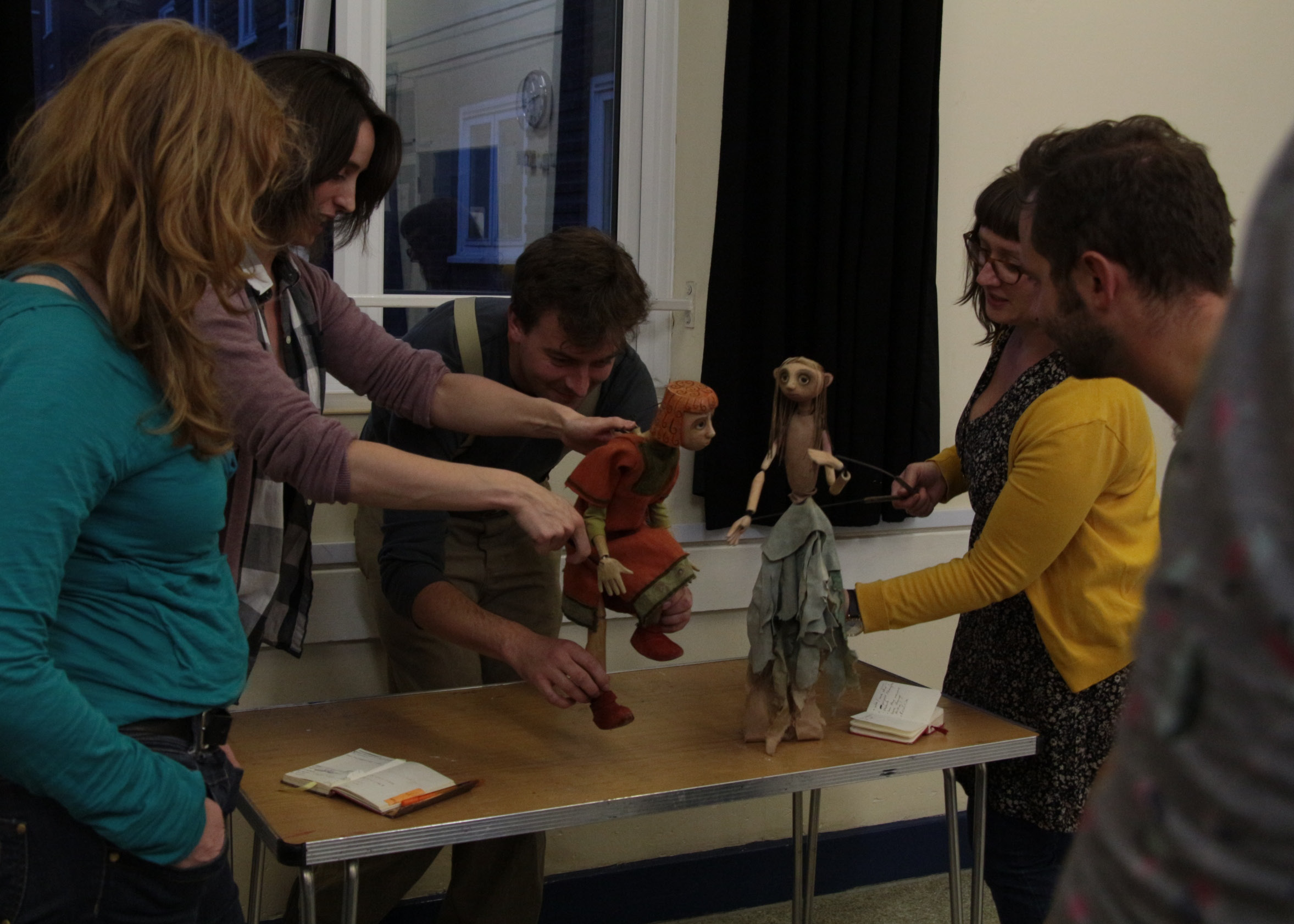With many productions incorporating puppetry, Susan Elkin takes a look at the growth of this traditional artform and the training opportunities now available.
Puppetry has probably been around for as long as children and adults have played make-believe games. Hold a tree branch in a certain way or make it “walk”. It becomes a tiny person – and you’ve created a puppet. Imagine early man, when he got a moment off from hunting woolly mammoths and fighting sabre tooth tigers, playing puppet games with his kids.
The Punch and Judy tradition is at least 350 years old too. The first recorded mention of puppetry is in Samuel Pepys’s diary. He commented in 1662 that he’d seen a miniature comedy show featuring Mr Punch.
Well today puppetry is a well established, wide ranging, centre stage art form. It is no longer marginal.
“I think the current wave of puppetry in large theatres and opera houses is partly down to decision makers like director, Tom Morris [Artistic Director at Bristol Old Vic] who have always had a passion for puppetry” says Slavka Jovanovic, head of learning at Little Angel Theatre, London’s “home of puppetry” in Islington (www.littleangeltheatre.com).
She continues: “And no one can deny “the War Horse effect” or the ripple effect of the 2012 Olympics which opened up ideas of scale and the impact of using puppets.”
Puppets can do a whole range of things human actors can’t. They can fly. They can break into pieces. If you use a succession of puppets in different sizes they can shrink or grow. And I once saw a production of Lorca’s The House of Bernada Alba done with puppets by an Iranian company. Actors in Iran, working in a strict Muslim culture, are not allowed to touch but of course puppets can. Even Avenue Q has the puppets energetically having graphic sex on stage which would be pretty tricky with actors.
“You can make puppets speak the unspeakable and do the unthinkable, as Mr Punch does” says Slavka. “Puppetry is a great way to present scale or fantastical or extraordinary situations”.
Many of the puppeteers you see in action at places such as Little Angel and or in Fiery Angel’s Jungle Book are supremely talented and skilled. How do you train as a puppeteer or add puppetry to your wider performing skills base?”
Check out Puppet Centre Trust (www.puppetcentre.org.uk), though. Established in 1974 and now based at Battersea Arts Centre, it is a “national development agency for puppetry”. Its work includes a full programme of training workshops along with residencies, conferences, mentoring and advocacy. It has some bursary funding to support trainees who need it.
So where else might you suggest that your puppetry-hungry students look for support, development and training? “Our foundation course at Little Angel is a good starting point for actors wanting to learn the basics. It’s very popular and always sells out” says Slavka who argues that, given the current demand for puppetry, there is generally too little training available.
As well as the foundation course there is a wide range of courses for children. Offers for adults include a weekly table top puppet making course, a marionette carving workshop and an introduction to making and performing with hand and glove puppets. Also available are school related courses, CPD for teachers.
Little Angel Theatre is also justly proud of its traineeships initiative whereby three Islington residents aged 18-24 work at the theatre for a year in a full-time, paid training post.
At its highest level, puppetry is a fairly small world and the same names keep coming up. Little Angel Theatre, for instance was founded by the late John Wright and his wife Lyndie who still lives next door to the theatre and is involved in many of its projects. Their daughter Sarah Wright has started the Curious School of Puppetry (www.curiouspuppetry.com) which runs an annual 10 week course. Tutors include Toby Olié (who worked with Handspring Puppet Company on War Horse ) and Lyndie Wright. The 2018 course was based at Summerhall, Edinburgh because CSP styles itself as “a mobile school”. The next course will take place January to March 2019 and applications are now open.
Or take London School of Puppetry (www.londonschoolofpuppetry.com) – in London and Derby, founded in 1987, it offers a flexible Diploma in Professional Puppetry which consists of six modules over two years – including four months of intensive teaching in Derby along with guided research and practice using distance learning. It’s designed to allow participants to fit the course in around concurrent work. Ronnie le Drew – another accomplished name which crops up almost as soon as you mention puppets has taught there. So has Lyndie Wright. There are some bursaries available to help with fees. LSP also offers short courses for teachers and others.
It isn’t all in London either. Norwich Puppet Theatre (www.puppettheatre.co.uk) runs a range of public and adult workshops from two hour skills workshops to two day masterclasses and Brighton Puppetry School (www.brightonpuppetryschool.com) offers “specialist vocational training by the sea”.
BPS is led by Darren East and Beccy Smith (of Touched Theatre) along with Isobel Smith (of Grist to the Mill) and offers a “professional pick and mix” of courses designed to stand alone or combine to create a comprehensive foundation in puppetry. All levels are catered for from keen amateurs to established practitioners and there’s a six day summer school covering the full range 7-12 July 2018.
Puppetry is evidently here to stay. I doubt that, in the present climate, that any performer with high level puppetry skills will be out of work for long.



